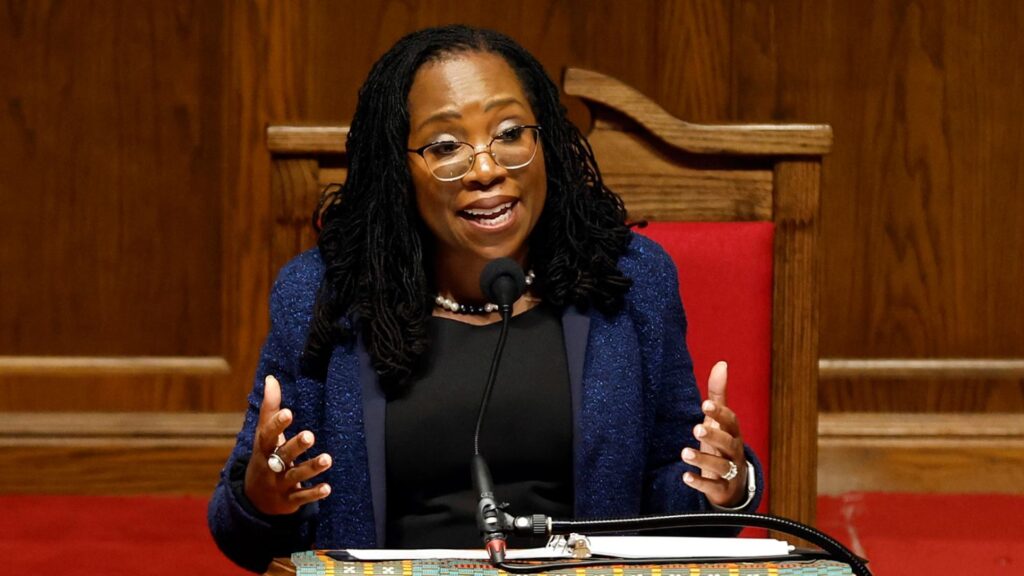There’s a special irony in hearing a Supreme Court justice argue that the only way to achieve equality is to declare everyone unequal. Yet that’s exactly what Justice Ketanji Brown Jackson managed when she suggested that all Black Americans are, in effect, “disabled” by their history—and therefore require special treatment in law and policy.
Jackson’s remarks came during a recent address on “inclusive democracy,” where she invoked race as a permanent civic impairment. Her argument, wrapped in moral concern, landed like a constitutional pratfall. According to Jackson, systemic bias is so omnipresent that Black citizens remain “disabled in fact if not in law,” implying that the Equal Protection Clause must bend to accommodate a perpetual disadvantage.
This is the “compassion as loophole” school of jurisprudence: when moral urgency collides with logic, redefine logic. In her telling, acknowledging common human capacity is a form of denial, and pretending permanent incapacity is empathy. It’s an extraordinary posture for a jurist charged with interpreting a Constitution that promises precisely the opposite.
The American legal system has long recognized that disadvantage exists. It’s also long recognized that remedying it through race-based preference corrodes the very equality it claims to restore. The Court reaffirmed that last year when it struck down affirmative action in Students for Fair Admissions v. Harvard. Jackson dissented there, too—insisting that the Constitution’s command to treat individuals equally somehow authorizes the government to treat them differently.
This new speech simply extends that logic: if disparities persist, equality itself must be the problem. It’s a tidy circle—unfalsifiable, ungovernable, and immune to evidence.
When a justice of the Supreme Court recasts an entire demographic as constitutionally infirm, the damage goes far beyond rhetoric. It legitimizes the idea that progress depends not on ability but on permanent managerial pity—that citizenship is less a right than a therapeutic category. It’s the soft bigotry of low expectations, constitutionalized.
And it’s not just bad philosophy; it’s lazy law. The Equal Protection Clause doesn’t recognize “protected feelings.” It recognizes persons. The 14th Amendment doesn’t create a hierarchy of healing; it restrains government from becoming one. Jackson’s approach would invert that restraint—empowering bureaucrats and activists to decide which groups deserve legal prosthetics and which must hobble along unaided.
For a jurist celebrated as a “historic first,” that’s a tragic legacy: replacing the hard-won principle of equality before the law with a sentimental caste system disguised as justice. The Constitution is not a counseling manual. The Supreme Court is not a group therapy session. And no matter how many speeches invoke “lived experience,” the republic cannot survive on empathy alone.
History’s cruelest lesson is that once you start grading human worth on a curve, someone always ends up holding the clipboard.
Citations
- Fox News – “Justice Jackson draws criticism for calling Black voters ‘disabled’ by history” (Oct 2025)
- Washington Examiner – “Jackson’s racial rhetoric crosses a constitutional line” (Oct 2025)
- Daily Mail – “Supreme Court justice sparks backlash with claim that all Black Americans are ‘disabled’” (Oct 2025)

